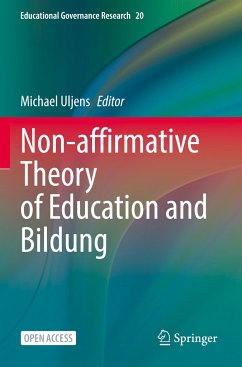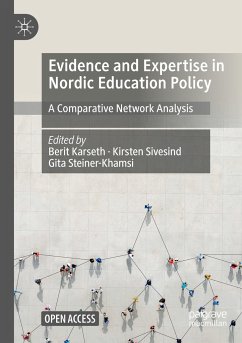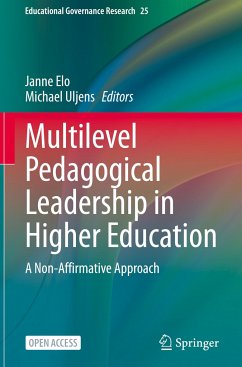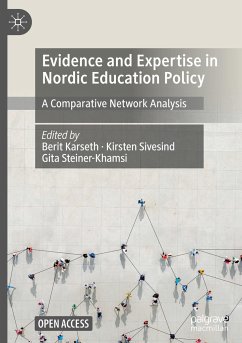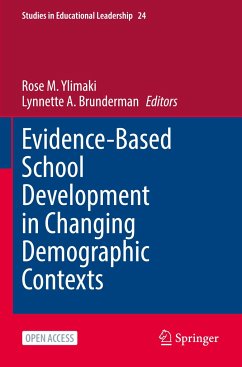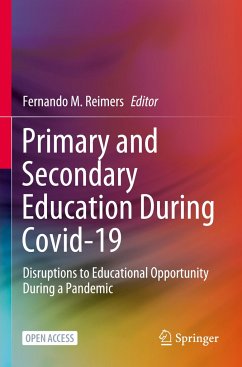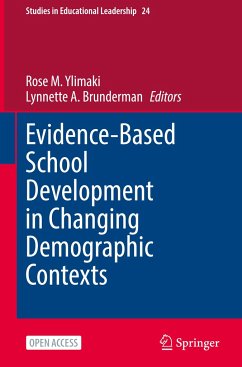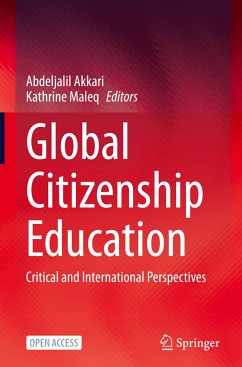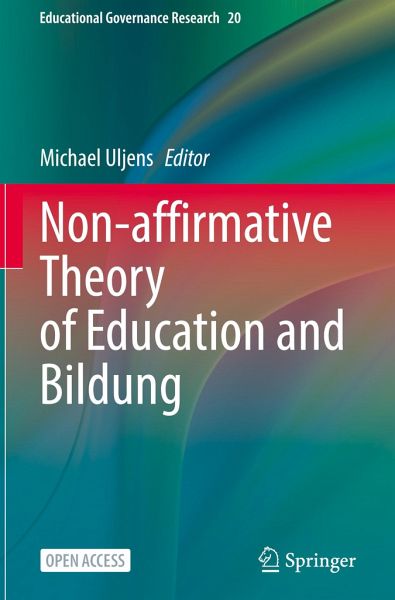
Non-affirmative Theory of Education and Bildung
Versandkostenfrei!
Versandfertig in 6-10 Tagen
38,99 €
inkl. MwSt.

PAYBACK Punkte
19 °P sammeln!
Interpreting the modern heritage of 'Bildung' in connection to education theory, this open access volume explores non-affirmative theory of education and 'Bildung' as a language of education for the 21st century. In this 'Bildung'-centered view of education, discerning thought on knowledge and values are critical objectives of education. To promote these aims, education practice must recognize but not affirm existing conditions or future ideals but instead pedagogically summon the student to self-directed critical treatment of the contents. Drawing on contemporary developments of modern educat...
Interpreting the modern heritage of 'Bildung' in connection to education theory, this open access volume explores non-affirmative theory of education and 'Bildung' as a language of education for the 21st century. In this 'Bildung'-centered view of education, discerning thought on knowledge and values are critical objectives of education. To promote these aims, education practice must recognize but not affirm existing conditions or future ideals but instead pedagogically summon the student to self-directed critical treatment of the contents. Drawing on contemporary developments of modern education theory, especially as developed by Dietrich Benner in Berlin, the volume highlight how 'educative teaching' aims at supporting the growth of the individual as a person and citizen.
The volume shows how it is possible to identify a position beyond education either as a mere transformative or a reproductive power. Instead of such an instrumentalism, education is seen as a critical societal practice, necessary for reflexive action and democracy. In different ways, the chapters demonstrate how non-affirmative theory offer an alternative to contemporary neo-liberal and conservative policies. The non-affirmative approach offers a strong education theory, relationally connecting the interactive level of teaching, studying and learning with the societal level and educational governance. Non-affirmative theory on education and 'Bildung' provides an elaborate point of departure for empirical research on teaching and educational leadership, teacher education and policy making.
In five sections, the volume highlights how non-affirmative education theory relate to Didaktik, educative teaching, school didactics, democratic education and social justice. The approach is also analysed in relation to phenomenology, sociology, hermeneutics, cultural-historical activity theory, discursive institutionalism, empirical research, educational leadership and governance and 21st century competencies.
Chapter "On Affirmativity and Non-affirmativity in the Context of Theories of Education and Bildung" is available open access under a Creative Commons Attribution-NonCommercial-NoDerivatives 4.0 International License via link.springer.com.
The volume shows how it is possible to identify a position beyond education either as a mere transformative or a reproductive power. Instead of such an instrumentalism, education is seen as a critical societal practice, necessary for reflexive action and democracy. In different ways, the chapters demonstrate how non-affirmative theory offer an alternative to contemporary neo-liberal and conservative policies. The non-affirmative approach offers a strong education theory, relationally connecting the interactive level of teaching, studying and learning with the societal level and educational governance. Non-affirmative theory on education and 'Bildung' provides an elaborate point of departure for empirical research on teaching and educational leadership, teacher education and policy making.
In five sections, the volume highlights how non-affirmative education theory relate to Didaktik, educative teaching, school didactics, democratic education and social justice. The approach is also analysed in relation to phenomenology, sociology, hermeneutics, cultural-historical activity theory, discursive institutionalism, empirical research, educational leadership and governance and 21st century competencies.
Chapter "On Affirmativity and Non-affirmativity in the Context of Theories of Education and Bildung" is available open access under a Creative Commons Attribution-NonCommercial-NoDerivatives 4.0 International License via link.springer.com.



